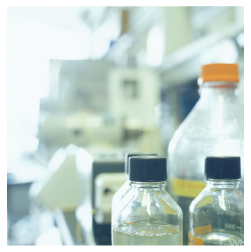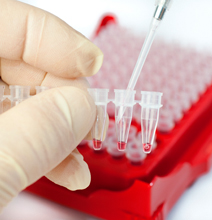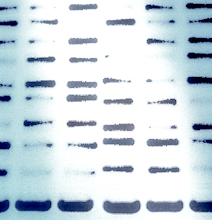Results
The results of a genetic test can take months to be ready.

When they are ready, try to look at them with serenity.
They will be read and interpreted by you doctor from the genetic clinic, and then discussed with you. Only a trained specialist is able to assess its results, and, at the same time, advise you on what to do to diminish a future risk of the disease.
Positive or negative results will have very different meanings, depending if they are from a diagnostic or a predictive test (see table).
A negative result on a predictive test is reassuring because it reveals that the person is not carrying the mutation, but on a diagnostic test, it just means that the mutation behind the cancer remains unknown.
In a family with a strong history of breast or/and ovarian cancer a negative result in a diagnostic test can raise the possibility of false negative. The other hypothesis is that the mutation associated with their familial cancer might be in a still unidentified gene.
In this case, the family should continue to be closely followed to reduce the future risk of disease.
| Positive result | Negative result | ||
| Diagnostic test | Meaning: | There is a mutation causing the cancer in the family, and, in particular, in the relative tested. | No mutation was detected that can explain the cancer seen in the family. |
| Measures: | Tested person : prophylactic and early detection measures are advised to reduce the risk of cancer in the future. Family:possibly of studying other relatives at risk. | Family: the mutation has not been identified, but the risk remains present. Surveillance and preventive measures need to stay in place. | |
| Predictive genetic test | Meaning: | The person tested carries the mutation. | The tested person is not a carrier, the familial mutation has been identified but has not been inherited by this person. |
| Measures: | Early detection and/or prophylactic measures are advised to manage the risk of cancer in the future. | The person can relax; his or her risk of cancer seems to be identical to the general population. No special measures need to be taken. The person should simply be included in the usual national screenings programs. |





